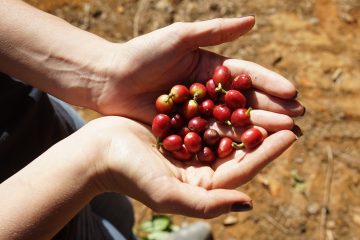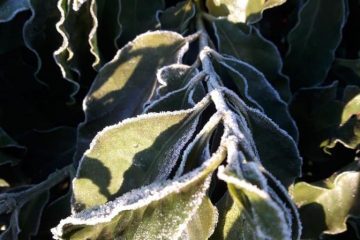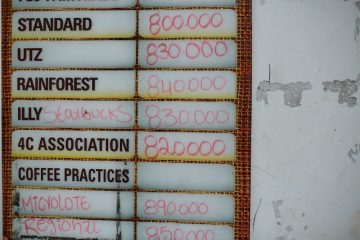I guess many are thinking of Brazil as an origin with huge mechanized farms selling relatively cheap coffees by the container. But this is really not always the case.
We bought about 10 different lots, from three different regions. South of Minas, Cerrado, and Chapada Diamantina in Bahia. They are all from small to medium farms of everything from 6 -70 hactares. The farmers are putting a lot of pride and effort in to their production to have great qualities with distinct cup characters. We are not generally buying Brazils to have a wide selection of the classic sweet, chocolaty and heavy coffees, and for our spot offerings we are trying to avoid the most common profiles with too much pulp and nuts.
When we buy naturals from e.g. Minas Gerais or Cerrado we are looking for fruit driven, clean and sweet coffees, still with a flavor element from the natural process and they generally have a good amount of acidity to back it up.
From Chapada Diamantina in Bahia we are looking for the opposite, as they generally have more altitude and different growing conditions. We generally buy washed or pulped naturals from there that tends to be brighter and more delicate than most other Brazils, even with floral notes and citrus. These coffees are hard to come across and the production is limited. 10 years ago the region was relatively unknown, but after having great success in competitions like Cup of Excellence they are now some of the more attractive coffees in Brazil.
Brazil is known for a big production of mediocre qualities. Of course we all know there is some very interesting stuff there as well, but it can be a challenge to find and get hold of those rare gems. Not because the coffees don’t exist, but often because the coffees are mixed in to bigger chunks of average qualities. First of all, there are tons of small to medium farmers around that have amazing potential, but without even knowing it. Unless they are very lucky to be discovered, there is not necessarily an exporter around to cup their coffees to analyse them for that kind of attributes. In many cases the cuppers wouldn’t even know what to look for and what our part of the coffee industry will appreciate. As a matter of fact there are experienced cuppers in Brazil who sees a fruit driven high acidity and complex coffee as a problem rather than a unique product. Even if Brazil started to do so called specialty coffee more than a decade ago the industry is generally focusing on commercial commodities. And thousands of the small producers are generally suffering from the low coffee prices these days, as very few are getting their premiums. According to our exporters and partners in Brazil about 95% of the farmers don’t have any idea of what kind of coffees they are producing, and the premium potential of their coffee.
The way we currently work in Brazil is to establish some programs through a few exporters that are helping the smaller farmers to improve quality, analyse and cup their coffees, as well as helping them to invest in their farms through our premiums.
Our Minas coffees (including Cerrado)
We have started a program with an exporter, Cafebras, in Brazil. They are in dialogue with a lot of small producers trying to convince them that they are able to produce “specialty”, and if they succeed they will get their premiums and be connected to international buyers that can work with them directly.
So far so good, and we have seen a lot of rare and interesting coffees and taste profiles. The goal is to establish some strong relations to a handful of producers willing to invests and make a difference through better preparations and quality control.
On top of the normal premiums we pay for quality an additional premium of the price we are paying the exporter is donated to the producer for investment in quality. This can be things as constructing buildings for warehousing and conditioning of coffees, building drying tables like African beds for better drying and flavor development for naturals, or other necessary improvements. Some are producing pulped naturals, but many are currently doing naturals only. Which actually suites us well as for this regions in Brazil we find them more unique when they are done well than the pulped naturals.
Chapada Diamantina – Bahia
Most of the producers we buy from in this region is located around the small town Piata. This area is widely different from other places in Brazils in terms of climate and ecotypes. It looks different, and the flavor spectrum is also speaking for it self.
The farms are on the slopes of the Chapada Diamantina Mountain range, and altitudes can be up to 1400 masl, which is very high for Brazil. Many of the producers are doing a so called washed process, or a mix of semi washed and some fermentation before they put the coffees on the patio. This, together with the climate, soil and growing conditions seems to create a very bright, transparent and complex cup profile that is pretty rare for Brazil.










